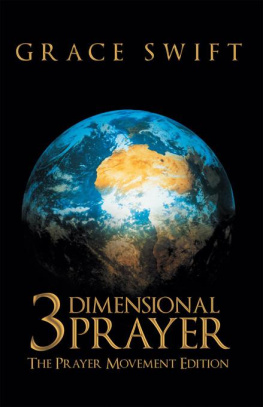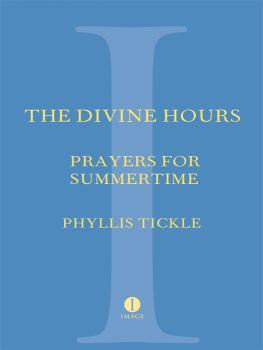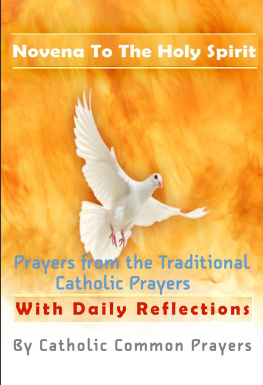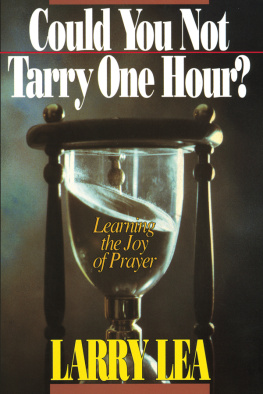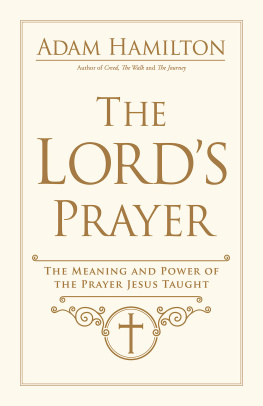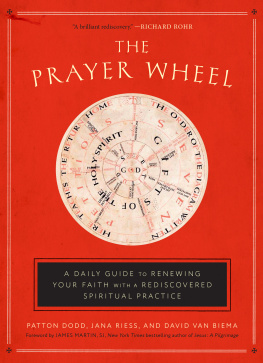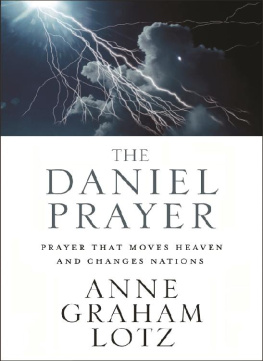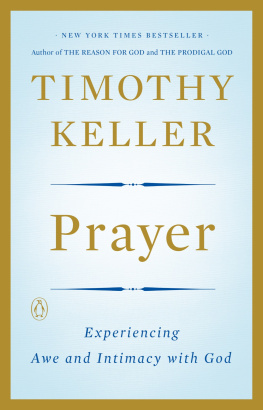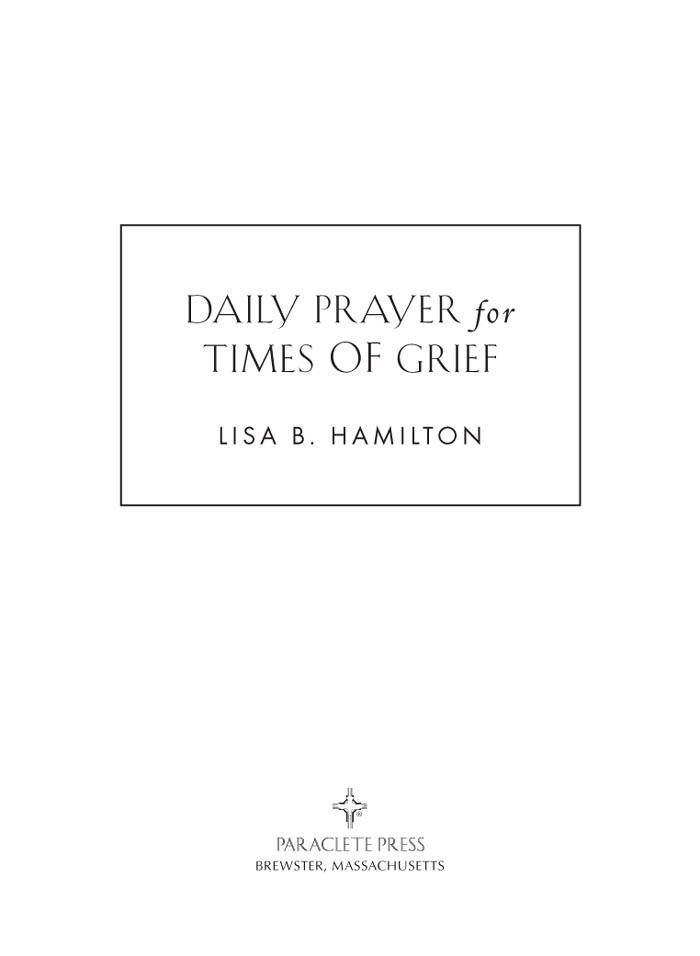DAILY PRAYER for
TIMES OF GRIEF
LISA B. HAMILTON

PARACLETE PRESS
BREWSTER, MASSACHUSETTS
Daily Prayer for Times of Grief
2001 by The Rev. Lisa Belcher Hamilton
ISBN: 978-1-55725-271-5
Scripture quotations designated (NJB) are taken from The New Jerusalem Bible, 1985 by Darton, Longman & Todd, Ltd. and Doubleday, a division of Random House, Inc. Reprinted by permission.
Scripture quotations designated (KJV) are taken from the King James Version of the Bible.
Scripture quotations designated (NRSV) are taken from the New Revised Standard Version of the Bible, 1989, by the Division of Christian Education of the National Council of the Churches of Christ in the USA. All rights reserved. Used by permission.
Scripture quotations designated (NIV) are taken from the Holy Bible, New International Version. NIV. 1973, 1978, 1984 by International Bible Society. Used by permission of Zondervan Publishing House. All rights reserved.
The Library of Congress has cataloged the original edition of For Those We Love But See No Longer as follows:
Hamilton, Lisa Belcher, 1959
For those we love but see no longer : Daily Offices for times of grief / Lisa Belcher Hamilton.
p. cm.
Includes bibliographical references.
ISBN 1-55725-271-8 (pbk.)
1. BereavementPrayer-books and devotionsEnglish. 2. Consolation Prayer-books and devotionsEnglish. I. Title.
BV4905.2 .H355 2001
242.4dc21
00012923
10 9 8 7 6 5 4 3 2 1
All rights reserved. No part of this book may be reproduced in any form or by any means without prior written consent of the publisher, except in brief quotations used in reviews.
Published by Paraclete Press
Brewster, Massachusetts
www.paracletepress.com
Printed in the United States of America.

For Scott Lane Hamilton
(19591991)
A man of God who pursued righteousness, godliness, faith, love, endurance, gentleness.
Fight the good fight of the faith; take hold of the eternal life, to which you were called and for which you made the good confession.
I T IMOTHY 6:12 (NRSV)
TABLE OF CONTENTS

INTRODUCTION

Our son was 26 months old the perfect June night he discovered lightning bugs. I cant count the times Ive tried to bring back the conversation his Dada and I were having when he interrupted us to pry open his chubby fingers and see the bug glow green, then stop, then glow green again. Look Dada, see bug light! Teddy squealed, and with every ounce of his being, Scott helped him into his lap. They took turns holding the last gift Teddy gave his father.
When Scott had cancer, Teddy was forever giving him thingseven his precious yanyee, his much-snuggled blue blanket. When there was nothing on hand, Teddy made things. The morning of a chemotherapy treatment, we walked our dog to the park, where Teddy interrupted his climbing long enough to make and feed Scott pretend oatmeal. But nothing anyone could give him cured the cancer. It took death.
Death came the night Teddy discovered lightning bugs. Scott passed out as he tried to climb the stairs in our starter house, and I dragged him to the bed crying, I wont let you fall, I wont let you fall, I wont let you fall. I jabbered and prayed aloud until he opened his eyes and croaked out, I love you. He even regained enough strength to say Compline with me. We kissed goodnight, and in the morning, we were still holding hands, but his was dead.
Everything was different that morning, including the way God was speaking to me in Psalm 91the Psalm we always chose at Compline. Psalm 91 was one of the ways God broke through the cancer to teach us to pray together. Psalm 91, with its images of safety under Gods wings, of refuge in angels hands, promised us that there was no terror even in plague. It was the last psalm of Scotts lifeand yet God did not rescue him and bring him to honor. The last verseWith long life will I satisfy him, and show him to salvationhad once helped bring us the relief of sleep. Only after a few years of accusing God of betrayal did I come to realize that, for Scott, the psalms promises are for eternity.
My being changed by the unchanging words of Psalm 91 is a discovery as ancient as the psalms themselves. Indeed, so is being changed by praying at fixed times of day. The psalms are often called Jesus prayers because they were (and are) such an integral part of Jewish worship. Jews were expected to pray at fixed hours, and its interesting to note how many important New Testament events occur at these times of prayer, as when Peter and John healed the lame man (Acts 3:110) who was lying at the Beautiful Gate of the Temple; the apostles were entering for prayer at three in the afternoon.
Apparently it took some centuries for Christians to settle on a schedule of fixed prayer, with early writers advocating prayer three or five or seven times a day. All schedules, however, included prayer at sunrise and sunset. Todays Offices (the term comes from the Latin opus Dei, meaning work of God) place us in communion with the earliest believers, as several elements (including the psalms and the Lords Prayer) were used from the beginnings of our faith, although scriptural readings were not used in daily prayer, but saved for the Sunday Eucharist and other select occasions. By the mid-sixth century, the Daily Offices included Scripture, and due in large part to St. Benedict, were fixed in a shape that is familiar to Christians today. The seven Benedictine Hours are collapsed in The Book of Common Prayer into Morning Prayer, Noontime Prayer, Vespers or Evening Prayer, and Compline, so the ancient structure and content connect not only with the living who pray them, but with the dead who have prayed them as well.
Perhaps grief has brought you to regulated prayer because you may find that structure helps you cope with the day. I did not return to work for some time after Scotts death, and I remember my relief at devising a schedule that ensured Teddy and I would be out of the house for a time every day. On Tuesdays, a plaster handprint recalls, we attended a Mommy and Me art class. I made certain that every day, we saw other people, even if they were strangers in the grocery store, and this was important. But the Daily Offices offer a holy connection to an unbroken chain of Christiansand provide us with deeper nourishment than we can devise alone.
When someone we love dies, it is often very painful to move to a new place. I remember the day of the Pittsburgh tag sale a year after Scott died because Teddy and I were moving to New Haven, Connecticut, where I would enter Yale Divinity School. As I saw people carrying away things Id sold them, I felt as if I were watching our life disappear down the driveway. Ive never found it comfortable to move in any waygeographically, professionally, emotionallyand now, without Scott, I feel I am somehow being disloyal in moving. Saying familiar prayers in a familiar form is a security I can take from job to job, from home to home, from feeling to feeling, and the knowledge that Scott and I are linked in prayer has often brought me the feeling that he is proud of the moving I do.
Prayer is the most lasting way I know to cope with loneliness. In part, grief is lonely because there are so few people able to listen without wanting to make it all better. One particularly bad day the summer Scott died, the phone rang, and when I said Hello, I was greeted with, You sound so much better. Its great that youre happy again. I spent the rest of the forgotten conversation staring at the front porch and wondering how I could sound better, and even happy, when the newspapers were piling up because I didnt have any interest in reading them.


